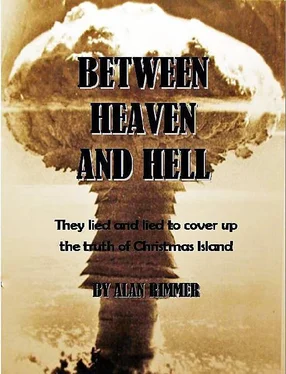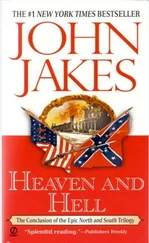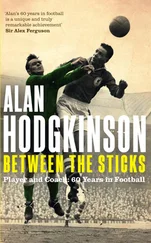On the approach road to Kiev, his car passed a large crowd of schoolchildren, the girls with gaily-coloured ribbons, and the boys wearing sashes, all lined up in regimental fashion waiting to board a convoy of buses. He was told they were being taken to summer camps far away in the mountains “for their own safety.”
Five miles from Kiev, the car was stopped at a checkpoint while a soldier sprayed the car tyres with detergent. All along the route huge convoys of military vehicles rumbled north toward Chernobyl, laden with sand and cement. It was explained these were for the vast concrete tomb being built around the stricken reactor.
Kiev city, usually a bustling metropolis of some three million people, was spookily quiet. The sidewalks were mostly deserted and what traffic there was seemed to scurry like beetles between buildings as though to avoid the invisible enemy in the air.
The city’s entire transport system had disappeared almost overnight as more than 1,000 buses, trucks and cars were commandeered to help in the huge evacuation of Chernobyl and the surrounding villagers.
Only a few days before, loudspeaker announcements all over the city had ordered the bewildered population to stay indoors and shower every day. No fresh vegetables were to be eaten and milk supplies had to be dumped.
McGinley’s small entourage pulled up at the impressive six-storey Dneiper Hotel, and stepped into an eerily silent world. The cavernous foyer echoed to his footsteps as he made his way to the reception desk where a single clerk stood nervously to attention.
McGinley and an official cum minder from Intourist, the State travel agency, and a couple of journalists were the only guests in the hotel, and that night they dined in splendid isolation in the huge dining room beneath magnificently ornate chandeliers. As they ate, a ceaseless convoy of tankers, spraying water, patrolled the roads and pavements just outside.
McGinley was later joined by Mr Nikolaj Lavrukhin, First Vice Chairman of the Kiev City Soviet. A very important man indeed, but who now seemed tired and dispirited.
Mr Lavrukhin was at pains to assure that all danger from Chernobyl had passed. He produced radiation charts and figures. He said radiation levels had now dropped from a dangerous 0.5 in the early days of the disaster, to a safe 0.06.
He was joined by Mr Victor Dobrotvor, Soviet head of culture and tourism for Ukraine, who arrived with an entourage of three. He frankly admitted that the bottom had dropped out of the tourist trade for Kiev.
In an aggrieved voice he said a total of 61 parties representing more than 1,800 people had cancelled their holidays because of Chernobyl. Mr Dobrotvor was at pains to impress upon McGinley that all danger had now passed and that people shouldn‘t be afraid of coming to his great city. “Even the grass cut out in the fields is being stored and checked for contamination,” he said reassuringly.
McGinley realised by now that his importance and status had somehow been grossly inflated and that the “Chairman of the British Nuclear Test Veterans’ Association” had different connotations in the Soviet Union. But who was he to argue?
He decided to sit back and enjoy the experience. He recalled: “I’m not sure who they thought I was, but they obviously believed I had a lot of clout. I think Robert Maxwell must have given me star billing. It was obvious they were working to a very well rehearsed script with the objective of getting the message across to the outside world that all was well in Kiev.”
Their reassurances would have been more convincing but for the fact that as they spoke a tanker passed outside, spraying the pavement and spattering the window of the room they were talking in with water.
Mr Lavrukhin looked up as the tanker swung by and burst out laughing. The moment broke the ice, and Mr Lavrukhin and his party threw away their well rehearsed scripts and relaxed. Mr Lavrukhin talked about his family and how they had all been caught up in the panic to evacuate the city.
He said he received a call in the early hours of the morning informing him there was an emergency at Chernobyl. He wasn’t given too many details at that point; just that there had been a large explosion.
As soon as he put the receiver down, it rang again. It was his boss who told him to report to the town hall at once. Before he could get out of bed, the phone rang again. It was the Ministry of the Interior in Moscow demanding information.
He ran to his car with just an overcoat over his pyjamas. At the town hall everyone was milling about, unsure of what to do. His boss was already there and was on the phone to people in Chernobyl. The chief of police and the fire officer ran in and were instructed to make all haste to Pripyat.
The blood drained from their faces when informed the nuclear power station had blown up.
Mr Lavrukhin said everything after that was just a blur. His job was to prepare for the possible evacuation of the whole city; an enormous task which kept him preoccupied night and day for three days.
Everything depended on the wind. If the winds swung toward Kiev, then everyone, three million people, would have to be evacuated; a virtually impossible undertaking but one which, nevertheless, had to be prepared for.
This would mean somehow telling the populace something of the emergency on their doorstep without causing widespread panic. On the second day, the winds did indeed swing toward Kiev and the first phase of the evacuation began.
All the schoolchildren, roughly about 200,000, were bussed out of the city and dispatched with all speed south to pioneer camps.
Lavrukhin’s own family, his wife and two daughters of school age, were evacuated in this first wave as they lived north of the city and therefore closest to Chernobyl. Mr Lavrukhin was overwhelmed by the responsibility: Not only did he have to deal with the possibility of the mass evacuation of the city… he also had to deal with the huge influx of people from Chernobyl and the surrounding area.
The following day McGinley was taken on a short trip outside the city limits to see the efforts being made to bring back normality.
Heading north out of Kiev there was evidence of the vast evacuation that had taken place. Municipal buildings and community centres were crowded with evacuees: so many that in some areas makeshift shelters had been hastily constructed on the pavements.
Leaving the city limits, things became even more chaotic. Fields surrounding the Ukranian capital had been turned into large encampments, with wooden and canvas structures supplying the bulk of living space. Many tents had been set up by the side of the road, and further tented camps had sprung up in wooded clearings.
Large convoys of trucks, tractors, buses, battered old cars and even a few horse-drawn carts were all parked up on the sides of the road. Groups of mainly young men stood around in surly groups. Check points, were positioned at intervals on the side of the road heading away from the disaster zone.
These were manned by up to a dozen people, each brandishing radiation monitors or jet-sprays hooked to their backs. Everyone passing through was swept and either passed ‘clean’ or directed to join the ragged queues at hastily erected tented clinics.
All that was left behind was a vast wasteland abandoned by its inhabitants as they fled the invisible enemy that spread like a dark stain from the stricken Chernobyl reactor.
McGinley’s eyewitness accounts of events in the Soviet Union made banner headlines. But the publicity generated by the Chernobyl incident was a mixed blessing.
Abroad, the veteran’s stock had never been higher. It encouraged ex-servicemen from across the globe to come forward with hair-raising accounts of their own experiences.
Читать дальше












